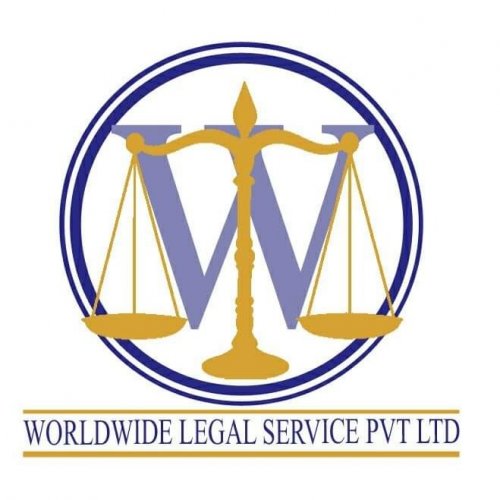Best Tax Increment Financing Lawyers in Kathmandu
Share your needs with us, get contacted by law firms.
Free. Takes 2 min.
List of the best lawyers in Kathmandu, Nepal
About Tax Increment Financing Law in Kathmandu, Nepal
Tax Increment Financing (TIF) is a public financing method used for subsidizing infrastructure and community improvement projects in Kathmandu, Nepal. It captures the future increase in property taxes that are generated from new development within a designated area. The increment, or difference between the current and future property taxes, is used for funding the initial project. TIF in Kathmandu aims to foster economic development, increase property values, and encourage private sector investment.
Why You May Need a Lawyer
Legal assistance in TIF matters can be crucial for several reasons. Developers or businesses interested in engaging with TIF projects may need help navigating the complexities of local regulations, understanding eligibility criteria, and assessing financial impacts. Legal representation may also be necessary for negotiating terms, resolving disputes with authorities, or ensuring compliance with agreements. Property owners and community stakeholders might seek legal advice to understand how TIF projects affect them or to challenge TIF-related decisions.
Local Laws Overview
The TIF process in Kathmandu involves several legal and regulatory measures. Key legal aspects include the designation of TIF districts, the approval process for TIF projects, and the allocation of TIF-generated funds. Local regulations ensure that TIF projects align with urban development plans and provide public benefits. Projects must undergo scrutiny and gain approval from local government bodies, often requiring detailed financial projections and impact assessments.
Frequently Asked Questions
What is the purpose of Tax Increment Financing?
The primary purpose of TIF is to stimulate development in underdeveloped or economically challenged areas by redirecting future tax revenues towards infrastructure and community improvement projects.
How is a TIF district created in Kathmandu?
A TIF district is designated by local authorities after proposed areas meet specific criteria. The area must demonstrate potential for growth and need for public infrastructure to spur economic development.
Who benefits from TIF projects?
The community benefits from improved infrastructure, increased employment opportunities, and enhanced economic activity. Developers benefit from financial incentives and reduced initial investment risks.
What types of projects are eligible for TIF funding?
Projects that are typically eligible for TIF funding include those focused on infrastructure improvements, affordable housing, commercial and industrial development, and community facilities.
Can residents oppose a TIF project?
Yes, residents and stakeholders can participate in public meetings and hearings. They can express support, concerns, or opposition to TIF proposals before approval.
Is TIF funding considered a loan or a grant?
TIF is neither a loan nor a grant. It is a funding mechanism that uses the increase in property tax revenue to finance public projects, without involving additional debt or grant requirements.
How do property taxpayers benefit from TIF projects?
Property taxpayers benefit through higher property values, improved public services, and economic growth, which can reduce the overall tax burden over time.
Can TIF funds be used for any purpose?
No, TIF funds must be used for purposes explicitly outlined in the TIF plan, focused on infrastructure, development, and public benefit, ensuring they adhere to legal requirements.
How is the success of a TIF project measured?
Success is typically measured by the extent of economic development achieved, increases in property values, and the overall improvement in community infrastructure and services.
What happens when a TIF district expires?
When a TIF district expires, the property taxes generated revert to the general tax base, benefiting the overall municipal budget and public services in Kathmandu.
Additional Resources
Individuals seeking more information or assistance may contact the Kathmandu Metropolitan City Office for guidance on TIF regulations and processes. Additionally, legal practitioners specializing in urban planning and development law can offer expert advice. The Department of Urban Development and Building Construction (DUDBC) can also provide resources and insights related to TIF projects.
Next Steps
If you need legal assistance with TIF in Kathmandu, consider consulting a lawyer who specializes in local real estate and development law. Begin by gathering documentation related to your project or interest area and schedule an initial consultation to discuss your needs and any concerns. Look for lawyers or firms with experience in TIF to ensure they can navigate the specific legal challenges involved in these projects.
Lawzana helps you find the best lawyers and law firms in Kathmandu through a curated and pre-screened list of qualified legal professionals. Our platform offers rankings and detailed profiles of attorneys and law firms, allowing you to compare based on practice areas, including Tax Increment Financing, experience, and client feedback.
Each profile includes a description of the firm's areas of practice, client reviews, team members and partners, year of establishment, spoken languages, office locations, contact information, social media presence, and any published articles or resources. Most firms on our platform speak English and are experienced in both local and international legal matters.
Get a quote from top-rated law firms in Kathmandu, Nepal — quickly, securely, and without unnecessary hassle.
Disclaimer:
The information provided on this page is for general informational purposes only and does not constitute legal advice. While we strive to ensure the accuracy and relevance of the content, legal information may change over time, and interpretations of the law can vary. You should always consult with a qualified legal professional for advice specific to your situation.
We disclaim all liability for actions taken or not taken based on the content of this page. If you believe any information is incorrect or outdated, please contact us, and we will review and update it where appropriate.

















